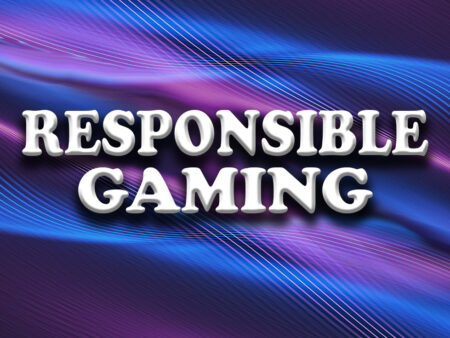
Gambling which started or was designed to offer players fun has been abused. Some players are now addicted to gambling which has not only affected their finances but also their relationships, lives, and general well-being. While some gamblers are not aware of responsible gambling practices, some are away but choose to neglect them only to see themselves addicted to them. In this article, we will look at the demographic of gamblers, the signs of gambling addiction, and how to prevent gambling problems.
Recognizing the Signs of Gambling Addiction
There’s a significant difference between enjoying a casual bet and succumbing to gambling addiction. You may need to reassess your gambling habits if you’re:
Finding yourself preoccupied with gambling, constantly planning your next opportunity to play.
Increasing the amount gambled to achieve the same level of excitement.
Making unsuccessful efforts to control, cut back, or stop gambling.
Feeling restless or irritable when attempting to reduce or quit gambling.
Gambling to escape problems or relieve feelings of helplessness, guilt, anxiety, or depression.
Chasing losses or trying to recover gambling losses with more gambling.
Lying to family members, therapists, or others to conceal the extent of involvement with gambling.
Jeopardizing or losing significant relationships, jobs, or educational or career opportunities because of gambling.
Relying on others to provide money to relieve desperate financial situations caused by gambling.
It’s a hopeful thing to recognize signs early and seek intervention. Early acknowledgment and acceptance pave the way for healing and recovery.
Addressing and Preventing Problem Gambling
Facing gambling challenges head-on is the first step towards a brighter, more controlled future. If you’re navigating the tides of gambling addiction, consider these proactive strategies:
Reach for support networks that can offer guidance, whether through friends, family, or professional counselors.
Explore self-help groups like Gamblers Anonymous, which provide community and understanding from fellow gamblers.
Utilize self-exclusion programs and download apps designed to block access to gambling sites, keeping temptation at bay.
Invest time in alternate hobbies that fulfill your need for thrill and excitement without financial risk.
Practice relaxation techniques such as meditation, deep breathing, or yoga to manage the stress that may trigger gambling urges.
Establish financial boundaries by managing your funds with the help of trusted individuals or financial advisors.
Your journey towards responsible gambling begins with the belief in change and commitment to taking small, consistent steps towards improvement. The potential for a balanced life, free from the shackles of problem gambling, lies within your reach. As you transition from risk to recovery, your story can serve as a beacon of hope and a testament to the power of resilience.
Demographics of Gamblers
Who Gambles? A Look at Age, Gender, and Socioeconomic Status
From the diversity in the gambling community, it’s clear that the lure of betting is not confined to any single demographic. Here’s what you should know about the varied faces of gambling:
Gender: Surveys have shown an even split between male and female participants.
Age Range: The community includes a broad spectrum, but a noteworthy number of respondents are aged 16-25.
Ethnic Diversity: People from different ethnic backgrounds engage in gambling activities.
Socio-Economic Variance: There’s a mix of participants from various socioeconomic statuses.
This inclusive mix highlights that gambling doesn’t discriminate; it can appeal or become a challenge to anyone.
How Demographics Influence Gambling Habits
Certain demographic factors may shape gambling behaviors and the likelihood of becoming at-risk or problem gamblers:
Positive Influence: You might find it interesting that only 36% of non to low-risk gamblers knew someone who won a large amount through gambling, compared to 55% of moderate to problem gamblers.
Negative Consequences: Similarly, 30% of less-at-risk gamblers were aware of someone who’d lost a significant amount, as opposed to 49% of those facing gambling issues.
Family Attitudes: If your parents or family regarded gambling negatively (*32% vs. 48%*) or prohibited gambling (*24% vs. 47%*), it could have shaped your gambling perception and practice considerably.
Parental Gambling: Were your parents or guardians gambling more than most people? Only 8% of participants indicated this.
Encouragement to Gamble: A small percentage noted that their family encouraged gambling when of age (*9%*) or involved them in placing bets (*40% to 41%*).
Peer Influence: It’s important to realize how friends could greatly sway your gambling habits. The majority of young gamblers (16-25) gamble with friends, and this likelihood increases with higher problem gambling severity.
Understanding these nuances gives you perspective on how demographic factors play a part in shaping gambling behaviors. Realize that you’re not alone in navigating these waters — myriad factors contribute to the development of gambling habits, and they can serve as guideposts for crafting your unique approach to responsible gambling. Remember, each step you take towards conscious gambling brings you closer to enjoying the activity without letting it control your life. Keep faith in your ability to steer through your journey with insight and determination

Edward Robinson believes gambling can be enjoyable but urges caution. His insights focus on the psychology of betting, healthy habits, and recognising when it’s time to seek help.
More about Edward Robinson
Age: 48
Experience: 20+ years in responsible gambling advocacy and research
Background: Former social worker, now heads a respected non-profit organisation
Hobbies: Bird-watching, volunteer work, and a keen interest in psychology
Residence: Cambridge
Marital Status: Divorced, shares custody of his teenage son


